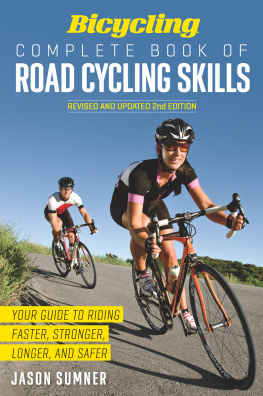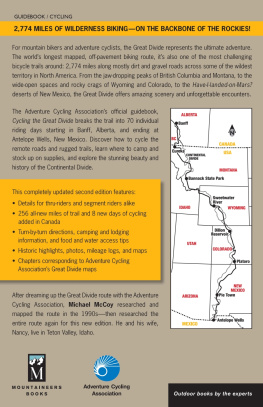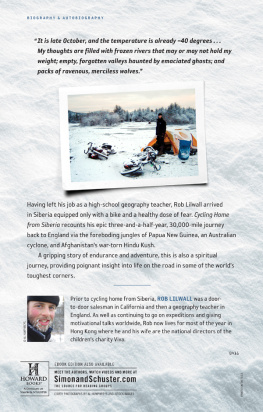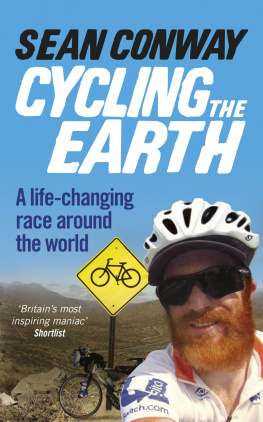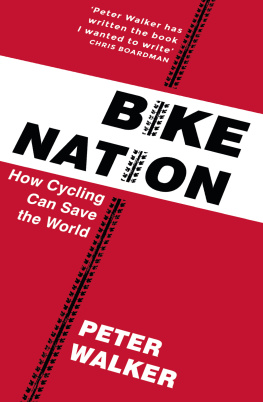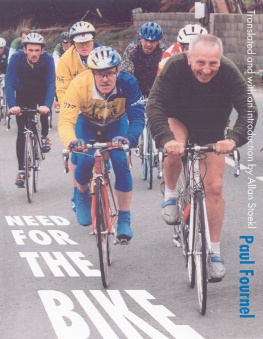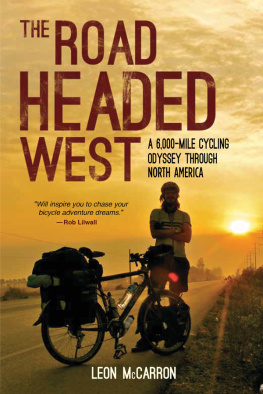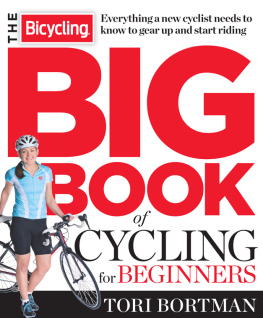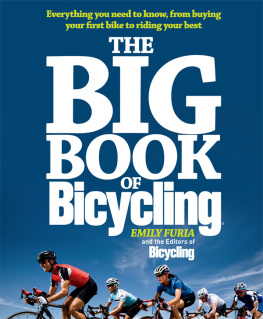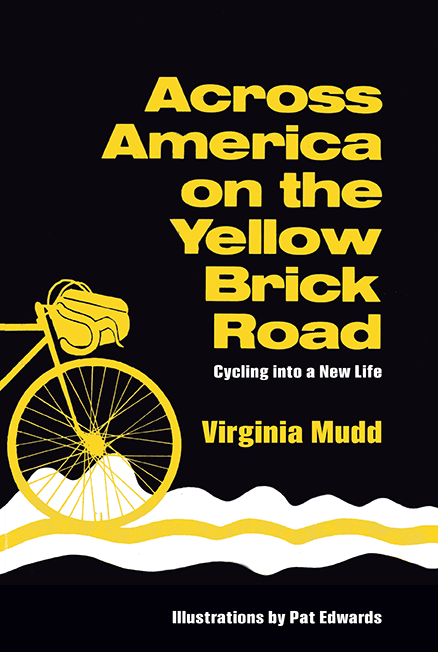Across
America
on the
Yellow
Brick
Road
Grateful acknowledgment is made for permission to reprint parts of the following:
I Whistle a Happy Tune by Rodgers & Hammerstein II, Copyright 1951 by Richard Rodgers & Oscar Hammerstein II.
Williamson Music, Inc., owner of publication and allied rights for the Western Hemisphere and Japan; International Copyright secured; All rights reserved; used by permission.
Paradise by John Prine, Copyright 1971 by Walden Music, Inc. and Sour Grapes Music. All rights reserved; used by permission.
The Impossible Dream by Joe Darion and Mitch Leigh, Copyright 1965 by Andrew Scott, Inc. and Helena Music Corp.
All rights reserved; used by permission.
2015 by Virginia Mudd
All Rights Reserved.
No part of this book may be reproduced in any form or by any electronic or mechanical means including information storage and retrieval systems without permission in writing from the publisher, except by a reviewer
who may quote brief passages in a review.
Sunstone books may be purchased for educational, business, or sales promotional use.
For information please write: Special Markets Department, Sunstone Press,
P.O. Box 2321, Santa Fe, New Mexico 87504-2321.
Illustrations by Pat Edwards
Library of Congress Cataloging-in-Publication Data
Mudd, Virginia, 1949-
Across America on the yellow brick road : cycling into a new life / by Virginia Mudd ; illustrations by Pat Edwards.
pages cm
ISBN 978-1-63293-048-4 (softcover : alk. paper)
1. Mudd, Virginia, 1949---Travel--United States. 2. United States--Description and travel. 3. Bicycle touring--United States. 4. Women cyclists--United States--Biography. 5. Cyclists--United States--Biography. I. Title.
E169.Z8M817 2015
917.304--dc23
2014044953
www.sunstonepress.com
SUNSTONE PRESS / Post Office Box 2321 / Santa Fe, NM 87504-2321 /USA
(505) 988-4418 / orders only (800) 243-5644 / FAX (505) 988-1025
To Gerry for his inspiration
To Linne for her guidance
To Tony for his encouragement
To Carol for a dream come true
Its a long journey through a country that is sometimes pleasant and sometimes dark and terrible.
From The Wizard Of Oz by L. Frank Baum.
Acknowledgements
T o all the people across America who befriended us, thank you for your open hearts and many kindnesses. You rekindled my faith in the goodness of people.
And also my thanks to Shoshanna Alexander, my editor and project coordinator, for making possible the adventure of creating this book.
The Beginning
My life has been so short, that I really know nothing whatever.
Im the last person I ever would have imagined to write a personal adventure story. The most adventuresome thing I did as a child was to ride my bike to the local shopping district a mile from my house, and that not until I was in the seventh grade and then only if I didnt ride through The Alley. Home was a rambling, stately brick house in a wealthy, but unglittery, area of Los Angeles. My parents and their families were prominent members of the communitypatrons, directors and presidents of prestigious organizationsbut they were careful to keep a low public profile. Mother was particularly fearful of the lucrative kidnapping possibilities presented by us five children, and she frequently recounted to me tales of domestic terrorarmed men tricking the maid into opening the door, tying up the servants or locking them in a closet and making off with precious family jewels or children. I was trained to thoroughly distrust strangers, especially men offering ice cream cones (which never happened). My sister and I were not even allowed to camp out in our own backyard overnight. During the thirteen years I lived in Los Angeles, I didnt ride a city bus once. Thus was I carefully shepherded through childhood, knowing only the private worlds of my house, school, and one or two respectable areas of town.
This carefully planned and protected life continued through high school at an exclusive, all-girls boarding school in Connecticut. My freedom and exposure to the outside world was limited to two weekends a year in New York City. After graduating, I followed my older sister Tory to Stanford University as I had followed her to boarding school. Within two months after my arrival, I had met a senior man on a blind date. It wasnt long before I was seen leaving my dorm in Tonys Lotus for the night, and soon I had moved off campus to live with him. Three days before my twentieth birthday, we were married.
Physically, I had been as incubated as I was socially and emotionally. Prenatal and infancy illnesses left me billed as physically handicapped through childhood. I was shuttled from one specialist to another for various neurological problemsan underdeveloped right side of my body, poor eyesight and circulation deficiencies. I was told I wasnt as strong as other children and had to nap in the afternoon years after my friends had stopped.
I was always last in sports, afraid to compete or even try, because I was so sure of failing. Gymnastics class in elementary school was torture. My turn would come, and Id stand in front of the horse with an iron clamp in my stomach, fighting back tears and the urge to flee. After a lead-assed, klutzy effort to get through the exercise, I would slink away, thoroughly defeated and ashamed. My weakling self-image was intensified when I compared myself to Tory. She is lean, agile and graceful, and excelled in most school athletics. I took after my mother, she told meshort, unathletic, with a figure problem. The same person, ten years later, determined to ride a bicycle across America.
Along with the privileges of growing up rich came a sense of tremendous obligation and responsibility to serve the community, to repay the world for the undeserved, unearned abundance that was bestowed on me at birth. I didnt consciously realize the extent of this enormous sense of guilt until I was thirty; I only knew that when the first energy crisis came in 1973, followed two years later by the long California drought, I became a compulsive and fanatic conservationist. It took me several years of therapy and introspection to understand that, on a subconscious level, I felt the drought was my fault and that I had complete responsibility for saving gasmy own and everyone elses.
A short time before the long gas lines formed, I had bought a bicycle, along with thousands of Americans caught up in the bicycle craze. At first I rode for the novelty of it; then I rode to save gas. I prided myself, in those gas-precious months, on saving 150 gallons a year. Tony and I were living in the San Francisco Bay Area suburbs. He had his first job out of law school, and I was working for my recently-elected congressman. During his campaign, I got into the habit of delivering election materials and canvassing precincts on my bike, even in 100-degree weather. People were impressed. That recognition was good for my self-image, so I kept riding and conserving and carrying buckets of bathtub water to the garden. It became a way of life.
After three years on that first 10-speed, I had proven to myself that it was no longer just a fad, and I could justify buying a better model to make my transportation more efficient and pleasant. I got a silver and red Motobecane Grand Jubilee for $350 and felt Id reached the height of professional biking. The bike was light as a feather, the wheels shiny, the tires thin. I proudly named it Little Silver and rode it everywhere I could.
The more I rode to fulfill my obligation to save energy, the more I came to enjoy bicycling in and of itselfthe exercise, the speed that was all my own, the sense of independence and freedom. I was convinced that bicycling was the superior means of travel, by far the most energy-efficient mode of human transportation. I was so convinced that I sold our green Volvo sportswagon, a car we both loved driving, proclaiming it unnecessary. Everything I wanted or needed to do I could accomplish with my bike.


